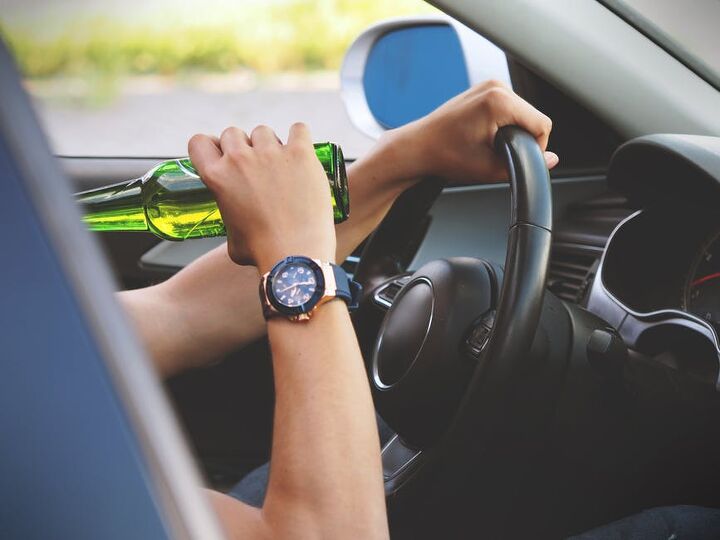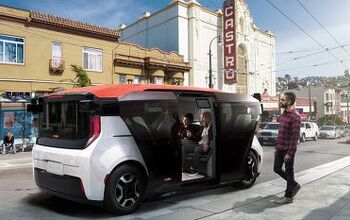It's Looking Like Virginians Won't Get a Chance to Legally Drink and Drive at Home

A bill seeking to amend Virginia’s DUI laws passed through the state Senate last month, but don’t expect the law to make it onto the books. The legislation aimed to make intoxicated driving legal if a driver performed the boozy feat on his or her own private property, with all other existing laws remaining the same.
As you might expect, this didn’t go over well with law enforcement, politicians, safety advocates, and various other concerned citizenry.
Introduced by Sen. Richard Stuart, the bill amended existing impaired driving laws with the statement, “This section shall not apply to any person driving or operating a motor vehicle on his own residential property or the curtilage thereof.”
Currently, violation of a DUI law leaves one on the hook for a number of penalties in the state of Virginia. Drivers could face a license suspension, $500 fine (at a minimum), or 50 hours of community service. The law forbids operation of a motor vehicle — meaning car, motorcycle, ATV, moped or train — anywhere in the state, meaning rural landowners with large properties could find themselves facing the long arm of the law after quaffing too many Coors Banquets while tooling around the back 40.
After a Senate committee sidelined his bill out of fear it was too broad, the senator changed his initial proposed amendment, adding specifics. It was this version the committee passed, as well as the Senate. Stuart claims the operation of a motor vehicle wasn’t at the forefront of his mind when he tabled the bill. Rather, it was cases where citizens are charged for drinking in a parked car in their own driveway.
“The bill had to do with a DUI on your private property or current property,” he said later. “And by trying to define where you could actually be charged with it, I think my bill went a little too broad.”
The outcry was immediate, with many calling the law a first step on a slippery slope. Among its detractors were the Virginia Association of Commonwealth’s Attorneys and Washington Regional Alcohol Program. A spokesperson for the Virginia Association of Chiefs of Police said that, for supporters, the bill came down to property rights and the ability to not have the state interfere with the enjoyment of that private property. The spokesperson did admit it sent a mixed safety message to youth.
In theory, potentially dangerous operation of a vehicle would be contained to the person’s property, less the cops pounce. However, opponents claimed a person drinking in a vehicle on private property can’t be counted on to stay there.
It’s probably a debate that’s dead in the water because, as of today, so is the bill. A Virginia House panel reportedly voted down the bill on Friday.
Driving under the influence is illegal in all 50 states, though some state laws are vague on whether that applies to private property. In many, DUI laws apply to all places and properties, while others make the distinction of “public” property. Still others add mud to the water by forbidding intoxicated driving on properties that are accessible to the public, which aptly describes most non-gated yards and properties.
These vague distinctions are just one of the reasons why lawyers will always exist.

More by Steph Willems
Latest Car Reviews
Read moreLatest Product Reviews
Read moreRecent Comments
- Peter Buying an EV from Toyota is like buying a Bible from Donald Trump. Don’t be surprised if some very important parts are left out.
- Sheila I have a 2016 Kia Sorento that just threw a rod out of the engine case. Filed a claim for new engine and was denied…..due to a loop hole that was included in the Class Action Engine Settlement so Hyundai and Kia would be able to deny a large percentage of cars with prematurely failed engines. It’s called the KSDS Improvement Campaign. Ever hear of such a thing? It’s not even a Recall, although they know these engines are very dangerous. As unknowing consumers load themselves and kids in them everyday. Are their any new Class Action Lawsuits that anyone knows of?
- Alan Well, it will take 30 years to fix Nissan up after the Renault Alliance reduced Nissan to a paltry mess.I think Nissan will eventually improve.
- Alan This will be overpriced for what it offers.I think the "Western" auto manufacturers rip off the consumer with the Thai and Chinese made vehicles.A Chinese made Model 3 in Australia is over $70k AUD(for 1995 $45k USD) which is far more expensive than a similar Chinesium EV of equal or better quality and loaded with goodies.Chinese pickups are $20k to $30k cheaper than Thai built pickups from Ford and the Japanese brands. Who's ripping who off?
- Alan Years ago Jack Baruth held a "competition" for a piece from the B&B on the oddest pickup story (or something like that). I think 5 people were awarded the prizes.I never received mine, something about being in Australia. If TTAC is global how do you offer prizes to those overseas or are we omitted on the sly from competing?In the end I lost significant respect for Baruth.


































Comments
Join the conversation
I’m not keen on the recent spate of “knee bone’s connected to the leg bone” type of laws. A recent absurd application occurred when an obese police officer attempted to climb a fence in pursuit of a suspect. The corpulent cop vapor-locked and ended up in the coronary care unit, the suspect was subsequently charged with assaulting a police officer. That’s risible. There was no intent. Stop the insanity.
If there's a policeman on my private property he better have a god damned warrant.